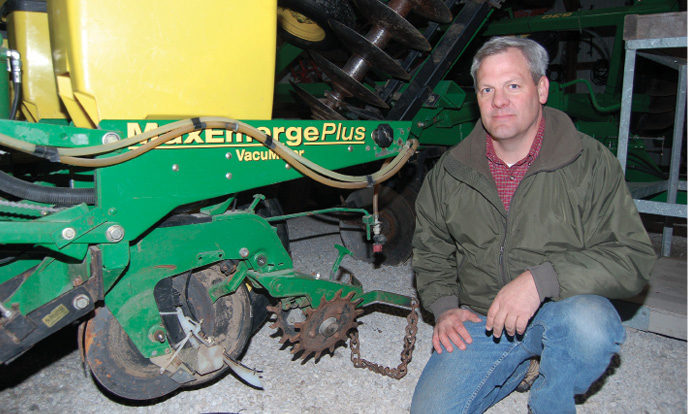No-Till Farmer
Get full access NOW to the most comprehensive, powerful and easy-to-use online resource for no-tillage practices. Just one good idea will pay for your subscription hundreds of times over.

NAME: Eddie Hoff, Hoff Farms Inc.
LOCATION: Boonville, Mo.
YEARS NO-TILLING: 35 years for Hoff Farms
ACRES NO-TILLED: 1,700
CROPS NO-TILLED: Corn, soybeans, wheat
I’m the third generation of the Hoff family to operate our farm near Boonville, Mo. Following an early example set by my dad, John Hoff, who first no-tilled in the early 1970s, I’ve spent the past several years fine-tuning our no-till program.
My Dad was the first no-tiller in Cooper County. He also attended the first National No-Tillage Conference from its beginning in 1993 to learn more about a new way of farming. He continued to attend the conference until he retired from active farm management.
I drew on Dad’s early no-till experiences. Today, after years of experimenting, we have a no-till system that has improved yields and soil quality on nearly 1,700 acres of wide-ranging soils and cropping programs.
We’re not blessed with consistent soil quality. It ranges from silt loam to rocks. Our initial challenge was learning to manage no-till within three different microclimates.
Our fields are terraced with deeper, well-drained soils on the terrace tops. The soils between the terraces are still fairly fertile, but have shallow topsoil overlying impermeable clay. These soils don’t hold moisture and crack open when it gets dry.
At the other extreme, some fields are outcropped with ancient Ozark rock and have limited yield potential. Each microclimate requires different management strategies.
Over the years, we’ve evolved to a no-till system that includes seven integral components.
…